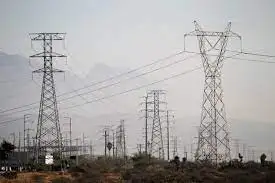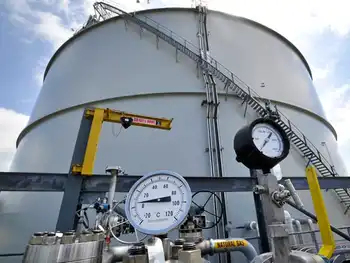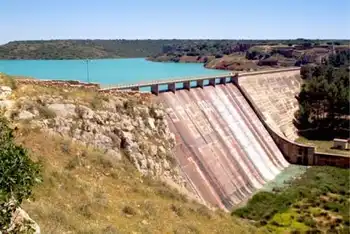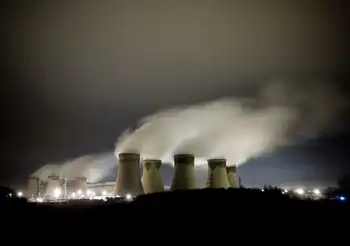Duke unit sees little immediate impact from CAIR, CAMR rulings
DE-Kentucky was answering a question posed by the PSC as part of an ongoing integrated resource plan review process. The commission asked about the impact earlier this year of two federal appeals courts striking down the federal Clean Air Interstate Rule and the companion Clean Air Mercury Rule.
"The recent court decision to vacate the CAIR (& CAMR) results in DE-Kentucky being required to continue to comply with the existing Acid Rain SO2 cap & trade program and the ozone season NOx Budget Trading Program," said the utility. "However, states will immediately begin to revise their State Implementation Plans to attain the fine particulate matter National Ambient Air Quality Standard, since their previous submittal relied on CAIR.
It is likely that equipment installed to comply with CAlR will be mandated to operate annually to meet new SIP requirements very soon. Furthermore, in order to address emissions transport, the U.S. Congress may act to reinstate CAIR or more stringent multi-pollutant legislation or states may file Section 126 petitions with USEPA against upwind states. DE-Kentucky is actively monitoring these activities."
DE-Kentucky was also asked about plans to operate the selective catalytic reduction system for NOx control at the East Bend plant for an additional time in 2008 in order to earn NOx Compliance Supplement Pool Allowances.
"With the court decision to vacate CAIR, there is no immediate requirement to operate the East Bend Station SCR outside of the ozone season — either to earn early reduction credits or the January 2009 implementation date. However, as stated in [the prior answer about CAIR and CAMR being struck down], the Kentucky DEP will be revising its fine particulate matter SIP very quickly and will likely require the operation of installed controls to attain the NAAQS."
In response to another PSC question, DE-Kentucky attached a fact sheet describing a small CO2 sequestration demonstration project at East Bend. "Duke Energy has volunteered to take part in a field test of a promising technique for permanently storing carbon dioxide deep under its East Bend Generating Station," according to the fact sheet. "The test is one of several being conducted in the Midwest by the U.S. Department of Energy's (USDOE's) Midwest Regional Carbon Sequestration Partnership (MRCSP)."
DE-Kentucky added: "Although the field test at East Bend is a very small-scale test, it represents an important step in building our knowledge and helping future generations to address climate change. If successful, geologic sequestration could also be economically important to Kentucky and other Midwestern states by allowing the region to produce carbon-neutral, affordable energy to support our region's economy in the future."
DE-Kentucky said various project activities will be spread over a period of about three years. The exact timing of individual activities will depend on what is learned during the previous step, as well as on the availability of needed equipment. Before injecting CO2, Duke Energy will prepare an application for a permit to the U.S. Environmental Protection Agency Region 4 office.
The permit application requires an operational plan, which will include factors such as determining the pressure at which the CO2 should be injected and a plan for monitoring the safety of the operations. These activities are expected to take place during 2008.
In the project, a very small amount of CO2 will be injected over a period of one to three months. Before injection, the CO2 will be compressed to a liquid-like state. It will then be injected through a well into rock formations filled with saline water. Injection will occur at a depth of 3,000 to 3,500 feet, far below drinking water sources, which are at a depth of less than 100 feet in this region.
Related News
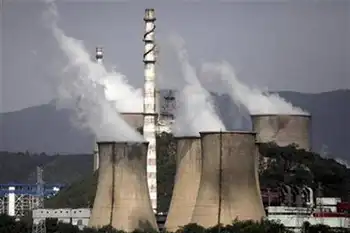
Thermal power plants’ PLF up on rising demand, lower hydro generation
LOS ANGELES - Capacity utilisation levels of coal-based power plants improved in May because of rising demand and lower generation from hydroelectric sources. The plant load factor (PLF) of thermal power plants went up to 65.3% in the month, 1.7 percentage points higher than the year-ago period.
While PLFs of central and state government-owned plants were 75.5% and 64.5%, respectively, the same for independent power producers (IPPs) stood at 57.8%. Though PLFs of IPPs were higher than May 2017 levels, it failed to cross the 60% mark, which eases debt servicing capabilities of power generation assets.
Thermal power plants generated 96,580 million…


